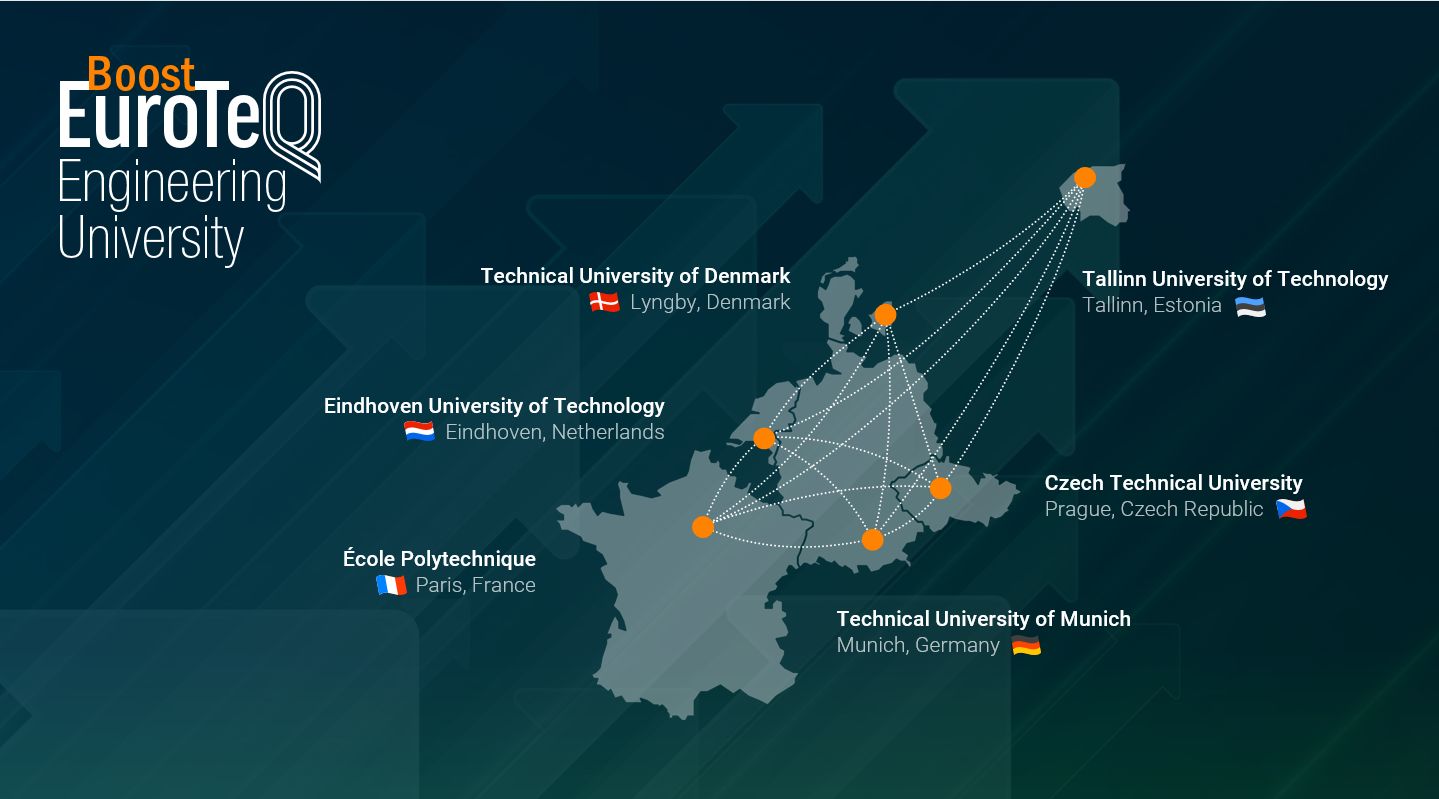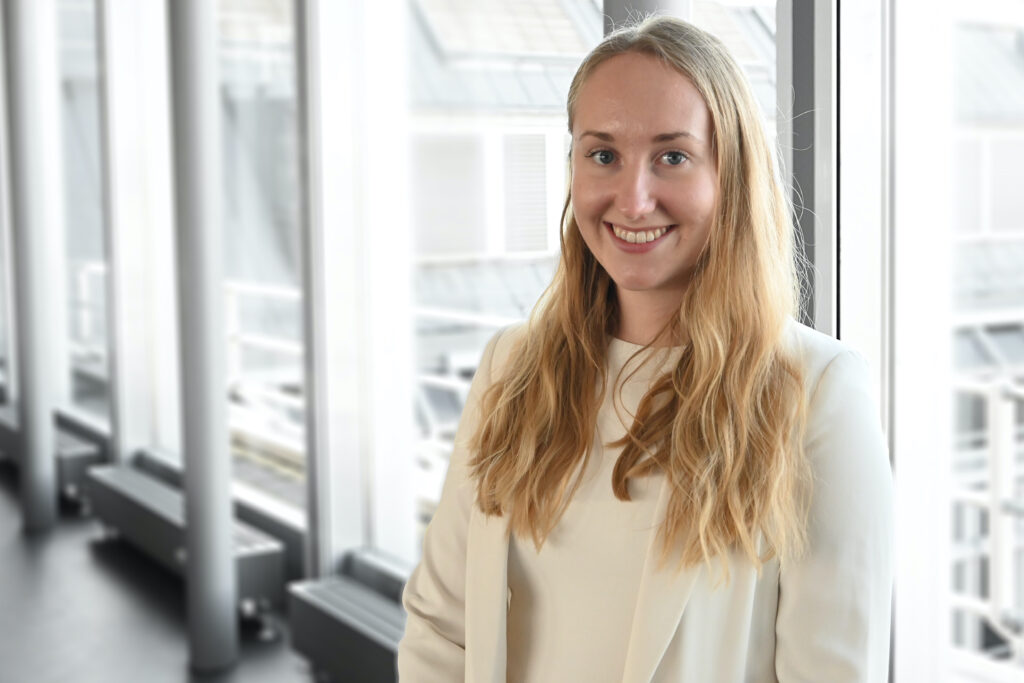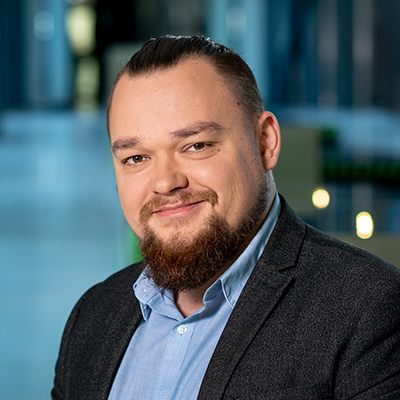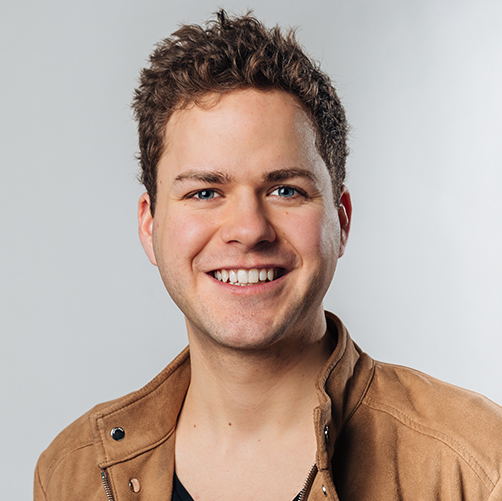Education meets Research, Innovation and Service to Society
How can universities of science and technology help create a workforce that meets the challenges of complex global problems that cut across technology and society? How can they support the professional and future-oriented development of engineers? Moreover, how can universities effectively upscale co-creation teaching practices? These are some of the questions we aim to address with BoostEuroTeQ.


About the project
BoostEuroTeQ is a scientific research project funded under EU Horizon 2020, running from 2021 to 2024. As a complementary project of the Erasmus+ funded EuroTeQ Engineering University, our goal is to encourage institutional change towards responsible research and innovation. The multidisciplinary project brings together engineering education, philosophy, ethics, science and technology studies.
Over the course of three years (2021-2024) we will work on two main dimensions

With BoostEuroTeQ, we set out to enable individuals. We will be supporting the lifelong learning journey of European professionals by conceptualising new professional profiles.
In the course of our project we will
- Analyse the developmental needs of the engineers of the future
- Develop a strategy for the upskilling of professional engineers at universities
- Create tailor-made training programms in close collaboration with institutional and industry partners
- Conceptualise training for Learning Professionals with the aim to qualify them as specialists in the scientific upskilling of engineers
With Boost EuroTeQ we foster societal transformation. We work towards augmenting the transformative potential of universities in society. We strive to achieve this by investigating co-creation practices and developing context-sensitive strategies for their reflexive institutionalization.
Our focus therefore will be to
- Create a EuroTeQ Co-Creation Manifesto on institutional strategies that will enhance the evolution of responsibility practices at technical universities
- Support the development of learning networks to increase co-creation practices in each community and conduct stakeholder engagement events on responsibilisation instruments at EuroTeQ partner universities
- Investigate the benefits and challenges as well as identify potential indicators for successful co-creation teaching at universities and develop a roadmap for the upscaling of co-creation teaching practices
BoostEuroTeQ is organised in eight work packages. Work packages 1, 7 and 8 focus on general project management tasks. Work packages 2 to 6 cover the two main dimensions of the project described above.
Work packages 2 and 3 focus on supporting the lifelong learning journey of European engineering professionals. There are two action areas: In work package 2, we work on the qualification of so-called EuroTeQ Learning Professionals as key actors that facilitate knowledge transfer between the universities and their wider eco-system. We envision the EuroTeQ Learning Professionals as „bridge builders“ and experts in the design of professional development programs and lifelong learning opportunities that consider latest research findings as well as needs of the industry. In work package 3, we develop a strategy to upskill the engineers of the future with tailor-made training programs for professionals.
Work packages 4, 5 and 6 focus on investigating co-creation and responsibilisation practices and developing strategies for reflexive institutionalization. In work packages 4 and 5, we have analysed the responsibilisation strategies and instruments used to support the sustainable collaboration with co-creation partners in the EuroTeQ universities. Based on this, our goal is to establish “connecting communities” between the partner universities and their eco-systems as long-term partnerships. In work package 6, we have analysed the potential benefits and challenges in co-creation teaching with a particular focus on the way such teaching affects students’ understanding of and engagement with responsibility in engineering. We are now working to create a roadmap for successful upscaling of co-creation teaching in all EuroTeQ universities.
Find out more about the two dimensions of the project here:
Co-creation is a developing new paradigm that allows companies and customers to create value through experience and interactive relationships. Co-creation also allows and encourages a more active involvement from the any to create a value-rich experience.
One focus area of the BoostEuroTeQ project is to explore how our universities are bringing into practice Co-Creation – and learn from the process to develop strategies to enhance it.
In this article, our researchers will share their thoughts and investigations on this topic in the following article.
94% of business leaders report that they expect employees to learn new skills on the job within the next five years. A few years ago, in 2018 it was merely 65%, according to the World Economic Forum’s “The Future of Jobs Report 2020“ – proving that Lifelong Learning is more than a buzzword these days.
Boosting Lifelong Learning is one of our main goals in BoostEuroTeQ. In the project, we investigate the developmental needs of the engineers of the future and develop an upskilling strategy for professional engineers and a training program for Experts for Learning and Professional Development that foster the required lifelong learning offers.
Read more about our researchers’ thoughts and investigations on this topic here.
Summary of Results
Here you can find a summary of the results achieved in the project to date (updated regularly; last update: June 2024).
- BoostEuroTeQ Flyer
- Status Quo Analysis EuroTeQ Learning Professional (summary)
- Status Quo Analysis EuroTeQ Learning Professional (full version)
- Analysis of Lifelong Learning offerings at EuroTeQ Universities (summary)
- Analysis of Lifelong Learning offerings at EuroTeQ universities (full version)
- Report on indicators for co-creation teaching (full version)
- Report on indicators for co-creation teaching (summary)
- SWOT analysis of responsibilisation strategies at EuroTeQ universities (summary)
- SWOT analysis of responsibilisation strategies at EuroTeQ universities (full version)
- SWOT analysis of responsibilisation instruments at EuroTeQ universities (full version)
- Qualification Framework EuroTeQ Learning Professional (summary)
- Qualification Framework EuroTeQ Learning Professional (full version)
- Analysis of upskilling needs of professional engineers (full version)
Video Playlist
Playlist

3:27

4:09

3:35

3:33

5:23

16:21

1:29:44

38:55

2:29

1:25

1:44
![L. Hasenbein: How do we qualify experts through Lifelong Learning [BoostEuroTeQ]](http://img.youtube.com/vi/9LIPSBqt9zA/maxresdefault.jpg)
2:27
We have analysed the status-quo of “Learning Professionals” at the EuroTeQ universities (see explanation of the role here). The results of the status-quo analysis are summarised here and the full report is available here.
Based on this and a number of expert interviews, we have finalised a Qualification Framework for the “EuroTeQ Learning Professional”.
- Qualification Framework EuroTeQ Learning Professional (summary)
- Qualification Framework EuroTeQ Learning Professional (full version)
Based on the qualification framework, we developed a respective training concept, including different stakeholders to qualify learning professionals who will be experts in the scientific upskilling of professional engineers. The concept is summarised here, and the full report is available here.
The pilot program was conducted between January and April 2024. The report can be found here.
We have analysed the market and current offers for lifelong learning at the EuroTeQ universities to show their potential as lifelong learning partners for professional engineers. The results of the market analysis are summarised here and the full report is available here.
In addition, we have conducted interviews with several experts to investigate the developmental needs of professional engineers (of the future). This article summarises the results of the needs analysis.
Based on our analyses, we have developed the concept for a tailor-made program for the upskilling of professional engineers. We executed the pilot program in March 2024 (see details here).
We have identified strengths, weaknesses, opportunities and threats (SWOT; drawing on interviews, document analysis and observation) of responsibilisation strategies and instruments used to support the sustainable collaboration with exerting co-creation partners in the different EuroTeQ universities (see an explanation of co-creation here).
- SWOT analysis of responsibilisation strategies at EuroTeQ universities (summary)
- SWOT analysis of responsibilisation strategies at EuroTeQ universities (full version)
- SWOT analysis of responsibilisation instruments at EuroTeQ universities (full version)
In addition, we have investigated the benefits and challenges of co-creation teaching and its effects in relevant courses across the partner universities (see also here) and reported on the improvements made in co-creation instruments (D 5.3).
Several dedicated workshops with the EuroTeQ partners were conducted in the context of co-creation. They are summarised here and the full D 5.2 report is available here.
Finally, we concluded the work done throughout the project period in two working papers.
The document “Co-creation. A Roadmap Towards Socially Responsible Engineering Education” is the result of more than 2 years of research at the EuroTeQ universities. We gathered desires, needs, and worries of those directly or indirectly working with co-creation at the EuroTeQ universities. The conversations and workshops with students, teachers, stakeholders, managers, and pedagogical units brought us closer to the decisive moments when onboarding on the co-creation journey in the classroom – they emerged as seven important moments to consider.
After controversies such as the VW diesel scandal, transport safety issues, or gender biases in facial recognition, engineering universities have been aiming to transform themselves with a renewed spirit for societal responsibility and sustainability. However, universities have been missing guidelines on how to practically involve diverse actors and facilitate the exchange. We hope that this report makes the practical application of co-creation easier for teachers, course designers, pedagogical units, stakeholders, and anyone working with more inclusive technology development.
A big thank you to Carlos Cuevas (TUM), Erkki Karo, Shobhit Shakya (TalTech), Lukas Fuchs (TU/E), Monamie Bhadra Haines (Virginia Tech, previously DTU), Per Dannemand Andersen (DTU) and Patrik Mottl (CTU) for their feedback on the content, as well as to Emmeline Werner for the Graphics, and Barbara Nino Carreras for support with the version for screen readers.
If you have accessibility issues with the document(s), please contact cnavo@dtu.dk
Latest Research Articles from BoostEuroTeQ
A key focus of BoostEuroTeQ is to support the lifelong learning journey of European professionals as well as investigate co-creation practices and develop context-sensitive strategies to enable their reflexive institutionalization.
Academic articles published by our researchers in journals and conference proceedings cover a range of topics useful not only to BoostEuroTeQ but to society in general.
Please note: to access some resources you may have to connect to the institution’s VPN, or please reach out to researchers directly.
In this article you’ll find a list of selected publications:
Year | Topic | Authors | Publisher |
|---|---|---|---|
2024, July | Lukas Fuchs; Gunter Bombaerts; Isabelle Reymen | Cases on Transformational Entrepreneurship (pp. 109-118). Edward Elgar Publishing | |
2024, June | Lukas Fuchs | NOvation-Critical Studies of Innovation, (6), (pp. 68-76) | |
2023, September | Lukas Fuchs; Carlos Cuevas-Garcia; Gunter Bombaerts | Tert Educ Manag (2023) | |
2023, May | Lukas Fuchs; Gunter Bombaerts; Isabelle Reymen | Journal of Responsible Innovation | |
2022, October | University Alliances as Learning Networks: Towards Responsible European Engineering Universities? | Lukas Fuchs; Carlos Cuevas-Garcia; Gunter Bombaerts; Patrik Mottl | 2022 IEEE Frontiers in Education Conference (FIE) |
2022, March | Responsibility in University Ecosystems and Challenge Based Learning | Lukas Fuchs; Gunter Bombaerts | 2022 IEEE Global Engineering Education Conference (EDUCON) |
2022, March | Reflection to support ethics learning in an interdisciplinary challenge-based learning course | Gunter Bombaerts; Diana Martin; Adam Watkins; Karolina Doulougeri | IEEE Global Engineering Education Conference (EDUCON) (pp. 1393-1400) |
2022, March | Exploring the factors influencing students’ experience with challenge-based learning: a case study | Karolina Doulougeri; Gunter Bombaerts; Diana Martin; Adam Watkins; Michael Bots; Jan D. Vermunt | IEEE Global Engineering Education Conference (EDUCON) (pp. 981-988) |
2022, August | Karolina Doulougeri, Antoine van den Beemt, Jan D. Vermunt, Michael Bots, Gunter Bombaerts | The Emerald Handbook of Challenge Based Learning (pp. 35-68) | |
2022, March | Responsibility in University Ecosystems and Challenge Based Learning | Lukas Fuchs; Gunter Bombaerts | IEEE Global Engineering Education Conference (EDUCON) (pp. 1248-1253) |
2022, August | Diana Adela Martin, Christian Herzog, Kyriaki Papageorgiou, Gunter Bombaerts | The Emerald Handbook of Challenge Based Learning (pp. 251-279) |
This project has received funding from the European Union’s Horizon 2020 research and innovation programme under grant agreement No 101035802.



